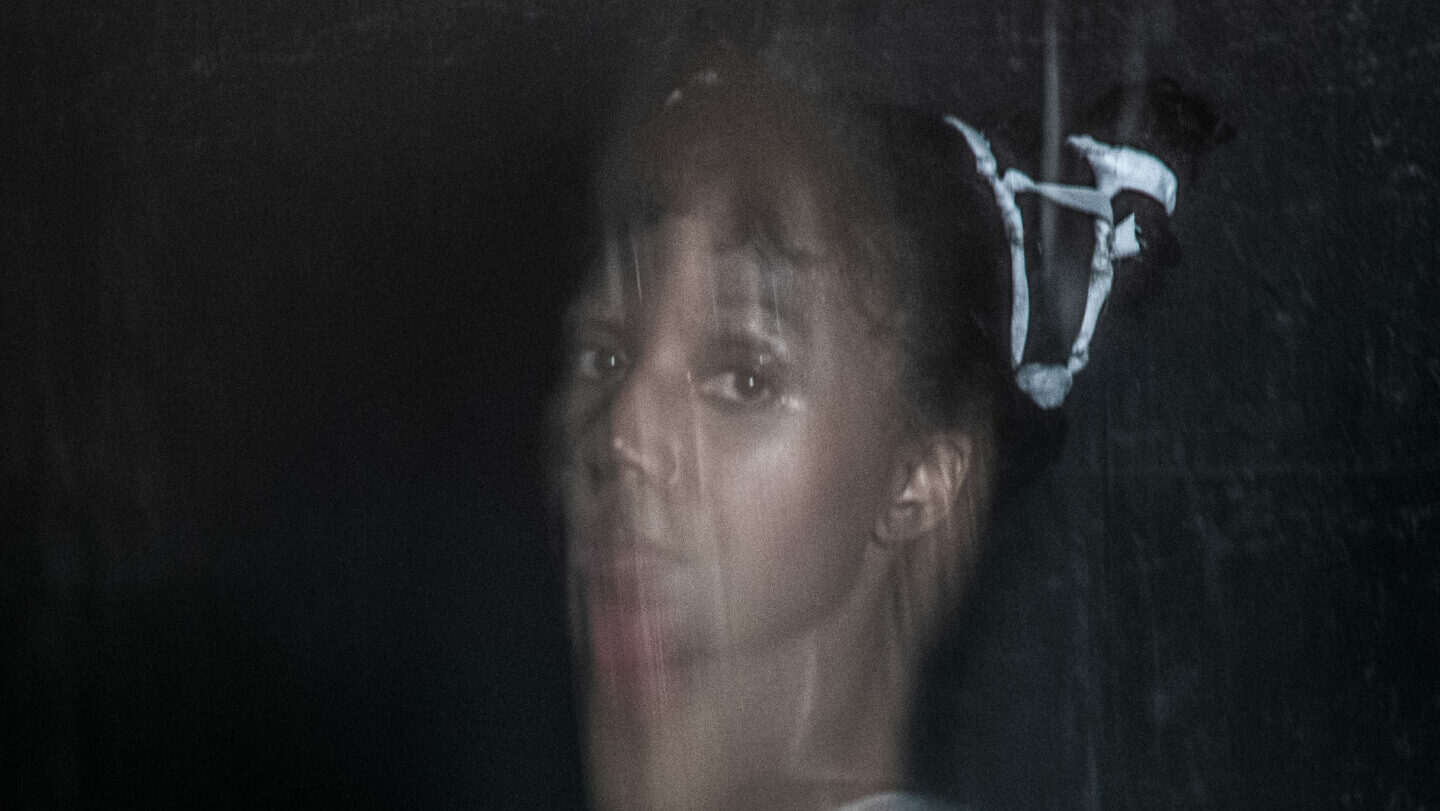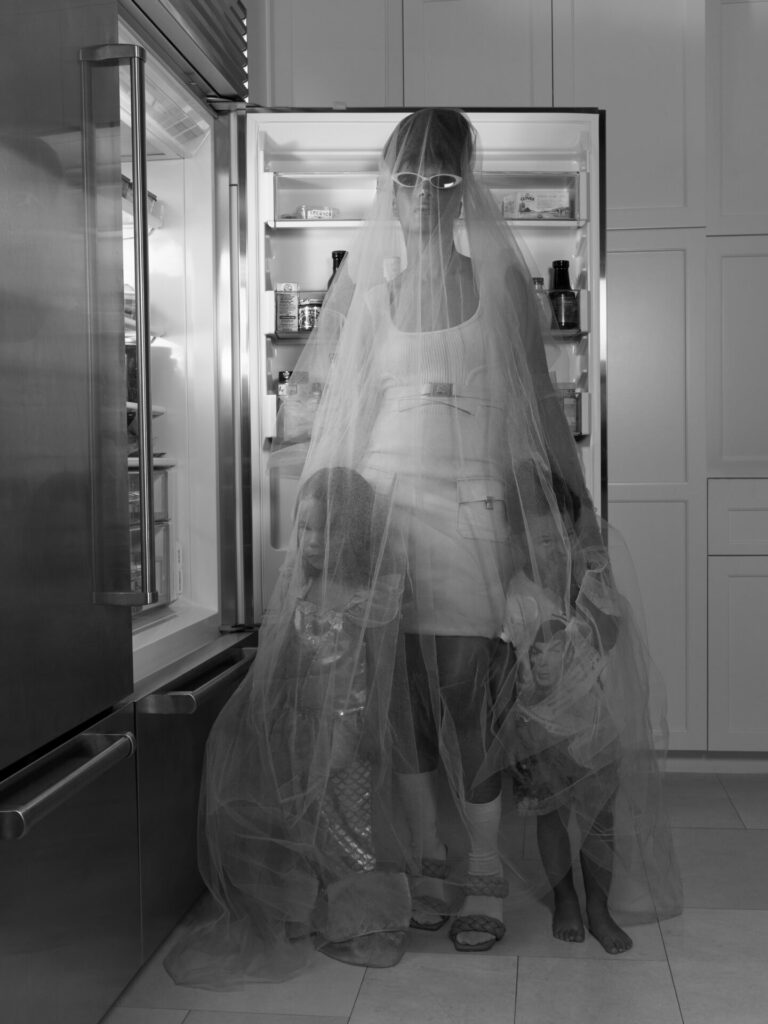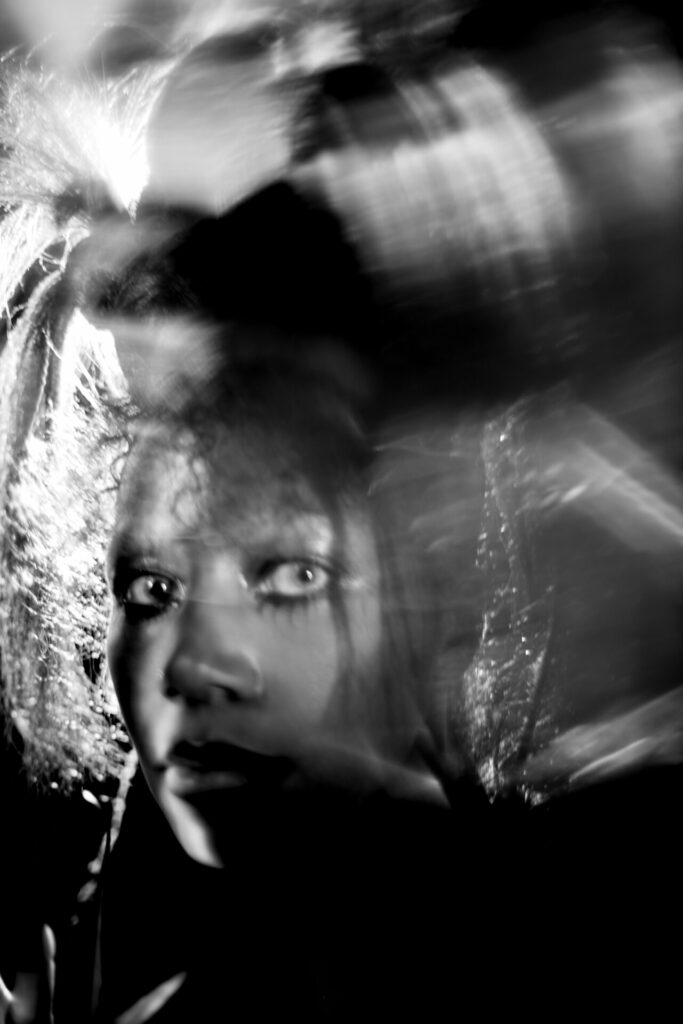The Last Word: Santigold on her Beyoncé co-sign and new album ‘Spirituals’
The art radical and genre-defying vocalist on her new album ‘Spirituals’ and getting a shout-out from Beyoncé on the ‘Queens Remix’ of ‘Break My Soul’

The Last Word is an interview that appears on the last page of every issue of Rolling Stone UK.
Santigold is a multi-platform art radical and genre-defying vocalist. Here, she waxes lyrical about the Beastie Boys, clocking a co-sign from Beyoncé on ‘The Queens’ remix of ‘Break My Soul’, and celebrating human resilience on new album, Spirituals.
Spirituals is the first release from your own label, Little Jerk Records. What’s the story behind the title?
Santigold: Spirituals is a nod to the traditional Negro spirituals. These contained songs that when sung and performed got Black people through the “un-get-through-able”. That’s what this record did for me. I wrote it in survival mode in LA and produced it in a little studio in the middle of the forest in western Canada during Covid. Social justice protests were unfolding, fires were burning up California, and people were being shot by the police. I had little kids and had to be a mom, wife, human and artist. There wasn’t time to feel. It wasn’t until I made the space to create that I realised these songs were a lifeline and a way to connect to a higher version of myself and go deeper. I’ve never written lyrics faster in my life; they were pouring out of me.
Is there a track that stands out over the rest?
Santigold: This album is a celebration of human resilience. Each song holds a similar place in my heart. ‘Ain’t Ready’ is my battle cry. It’s about internal struggle, picking yourself up when you get knocked down, and trusting that you’re going to get to where you need to get too. It’s about perseverance and stepping into your own power. When I first sang the lyrics, I was alone in that studio in the woods and started crying. I collaborated with Canadian producer Illangelo, and I wanted the production to sound tough and mirror the grit of the battle many of us were going through.

In the music video for ‘Shake’, you get relentlessly blasted by a high-pressure water hose and deliver one of your most daring visual statements yet and a piece of performance art. Where did you draw from?
Santigold: I was inspired by the images of the civil rights protesters being pounded with high-pressure water hoses by the authorities during peaceful protests. The strength and fortitude it took them — many of whom were young teenagers — to keep going is monumental. So, in the video I try to power through singing this song while enduring the pain they experienced as an homage.
You’ve toured with Kanye, Jay-Z, M.I.A., Lauryn Hill and jumped on tracks with a staggering list of artists from Devo, to Q-Tip, GZA, N.E.R.D, Basement Jaxx, David Byrne and Julian Casablancas. Was there one in there that hit different from the rest?
Santigold: I can’t pick a favourite because there were so many, especially David Byrne and even Amadou and Mariam. An example of how cool it is to work with the idols you had as a kid was definitely the Beastie Boys for me. I heard ‘Cooky Puss’ when I was seven years old, and the rest is history. I played that on loop. I tried to get my friends to form an all-girl rap group, but they weren’t having it. I was heavily into punk and hip-hop. My first time on stage was fronting my own punk rock band, Stiffed. So when I found out the Beastie Boys were fans of my first album and listened to my music, that was so wild. Not long after that, they invited me to play some shows, write lyrics and add vocals for their reggae dub track, ‘Don’t Play No Game That I Can’t Win’.
You tore onto the music scene as the frontwoman in the punk band Stiffed. How did the band form?
Santigold: I put the band together. Chuck Treece was my drummer. Eventually, John Hill took over on bass and later produced my first solo album. I wanted to make music but never intended to perform it. Eventually, a friend of mine, who was the manager from the Roots, got us a gig in a packed-out dive joint in Philly, and I agreed to give it a shot. I had a mic with all these mad effects I could press like this heavy reverb to hide my singing. I was nervous as hell; my armpits were sweating. But I always tell my son, “Nothing is worth doing if it doesn’t make you a little scared.”
We went on to tour New York across the west coast and even [went to] London. Honestly, those punk shows are still the most fun I’ve ever had on stage. My Santigold shows are so curated and tight; these were raucous and uninhibited. They taught me everything about the stage presence I have now and how to be a performer.
I was always into punk. I loved the rawness and urgency of the Pistols, Bad Brains, the Clash, Siouxsie and the Banshees. Then the synth-laden new-wave like early Cure, and David Byrne, who I was lucky enough to collaborate with on his song ‘Please Don’t’.
“I’m thankful to Beyoncé for letting people know about these women who changed the music industry”
— Santigold
What was your first ever solo gig?
Santigold: I opened for Björk at Madison Square Gardens. She’d found me on MySpace, and it kinda blew my mind. I remember thinking like, “Wow, this internet thing is pretty next level.”
Where were you when Beyoncé called out your name alongside other queens in the industry on her ‘Break My Soul (The Queens Remix)’. What does that mean to you as an artist?
Santigold: I was here in Jamaica when the remix broke, and my phone started blowing up. I had no idea she mentioned me. I’m honoured to be shouted out among all these Black women — powerful, powerful spirits, many of whom never received the acknowledgement they deserved! I’m thankful to Beyoncé for using her platform to let people know about these important Black women who have been pioneers, who changed the music industry and impacted so many. A lot of people know Grace Jones and Solange, but they might not know me, or Rosetta Tharpe or Bessie Smith, and now they’re taking the time to look us up. That means a lot.

You’ve continually blazed your own path in the world of pop music and beyond for others to follow. Have you seen change for the better in the industry, and what still needs to evolve?
Santigold: I started out in the 90s. I worked as an A&R at Epic Records in 2000. Business and technology-wise, the music world is 100 per cent different. But honestly, if you ask me whats changed for the better as a female in this industry, my answer would be, still not nearly enough. I don’t think we’ve made that much progress on that tip. There’s this tiny little box, that if you want to be a pop star you have to fit into. Lazy comparisons like myself and M.I.A., or Lauryn and Erykah or Jill Scott, are still being made.
As far as major players in the studio, I know that technology has made it so much more accessible for women to hone their skills and become producers and engineers at home. But I’m looking forward to when those up and coming women step forward and come into the limelight. Because at the moment it’s still not on the scale that it should be.
Throughout your career, you’ve been fiercely innovative. Your music has appeared on car commercials with Karen O of the Yeah Yeah Yeahs, you sang background vocals for Tyler, the Creator’s IGOR and you’ve acted on The Office. What does the future hold?
Santigold: I’m really excited to let my music take me to new places. I want to continue branching out into all forms of art. I created Spirituals as a multi-sensory experience. I have a small batch of natural skincare products and a tea collection coming out bearing the same name. I’m writing a book tracing back four generations of phenomenal women in my family in Mississippi as well as my own journey. I’m working on a film. I’m releasing a new podcast series interviewing other artists and brilliant thinkers. Currently, in London, I’m also in a video installation as part of the exhibition, In the Black Fantastic, at the Hayward Gallery.
When I was making Spirituals, there was so much that I wanted to express. When you put out a new project, sometimes your message gets condensed to “Santigold is finding her power”, but for me, it’s so much deeper than that. I’m only getting started.
Spirituals is out 9 September 2022.
An edited version of this interview appears in the October/November 2022 issue of Rolling Stone UK. Buy it online now.
